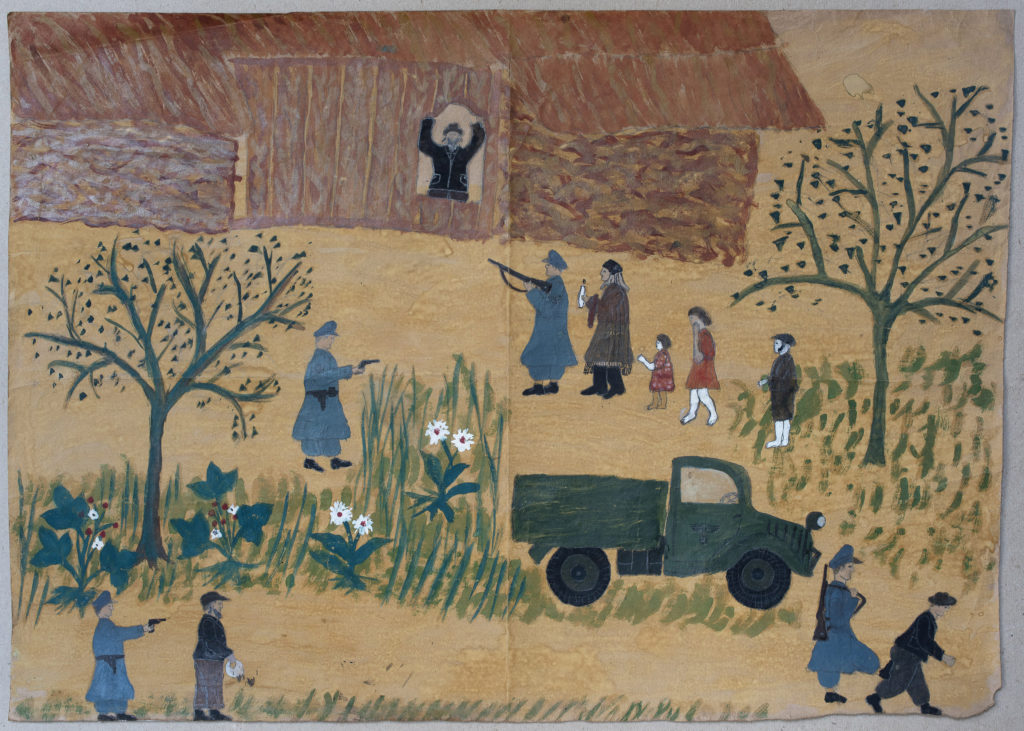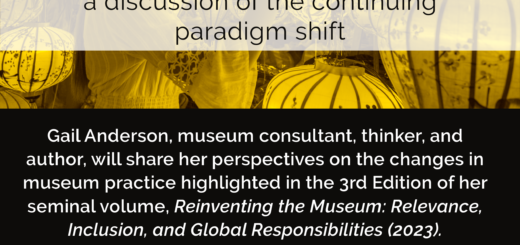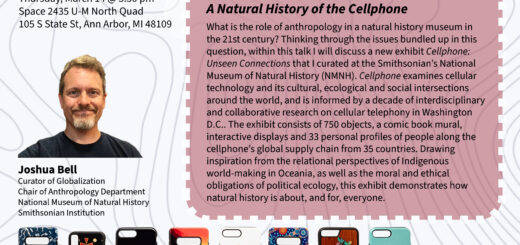Public programs facilitate dialogue between academics and professionals, informing scholarship and strengthening practice.
Multiple day conferences, year-long colloquia, individual lectures, “conversations” between individuals, hands-on workshops, and Museums at Noon talks featuring our graduate students all contribute to the remarkable richness of MSP offerings.
Video recordings of some MSP lectures are archived for viewing in our Media Gallery.

- This event has passed.
Terribly Close: Polish Vernacular Artists Face the Holocaust
March 10, 2021 @ 12:00 pm - 1:30 pm
Presentation by Erica Lehrer, Concordia University
Can inanimate objects store and communicate traumatic memory that cannot be directly expressed? This talk examines ‘folk art’ made by non-professional Polish artists – many of them village laborers – documenting the German Nazi occupation of Poland and the Holocaust. Made largely in the 1960s and 70s, these objects are uncanny: at times deeply moving, at others grotesque, they can also be disturbing for the ways they impose Catholic idioms on Jewish suffering, or upend accepted roles of victim, perpetrator, and bystander.
Dr. Lehrer introduces forgotten works by some of Poland’s best known “folk” artists from the postwar socialist People’s Republic of Poland, recently re-discovered in Polish and German ethnographic museums and private collections. Never before treated as a genre, these objects are complex artworks born of various impulses: their creators were artists, but also collectors, ethnographers, curators, and ideologues. The oldest example is a painting from ca. 1948 by Sławomir Kosiniak from Zalipie, a village famous for its decorative floral motifs. Recently discovered in the archives of the Kraków Ethnographic Museum, it presents the round-up of local Jews. The most recent work is Jedwabne by Jan Kowalczyk, commissioned by a German collector in 2017. These “awkward objects,” which fall outside the accepted visual language of Holocaust representation, provoke profound reactions in viewers, and raise complex questions about the relationship between art and traumatic memory.
Dr. Erica Lehrer is a Professor of History and Sociology-Anthropology at Concordia University (Montreal), sociocultural anthropologist and curator. She also founded and directs Concordia’s Curating and Public Scholarship Lab. Dr. Lehrer is the author of Jewish Poland Revisited: Heritage Tourism in Unquiet Places (2013) and co-editor of three books, including Curatorial Dreams: Critics Imagine Exhibitions (2016). Her curatorial work includes a number of international exhibition projects, most recently Terribly Close: Polish Vernacular Artists Face the Holocaust at Kraków Ethnographic Museum in 2018-19.
This lecture is presented in partnership with the Frankel Center of Judaic Studies, CREES (Center for Russian, East European, and Eurasian Studies), CCPS (Copernicus Center for Polish Studies), and WCEE (Weiser Center for Europe and Eurasia).
Presented online via Zoom; registration required.
Slawomir Kosiniak, Untitled, ca. 1948, Ethnographic Museum in Krakow, photo by Wojciech Wilczyk



